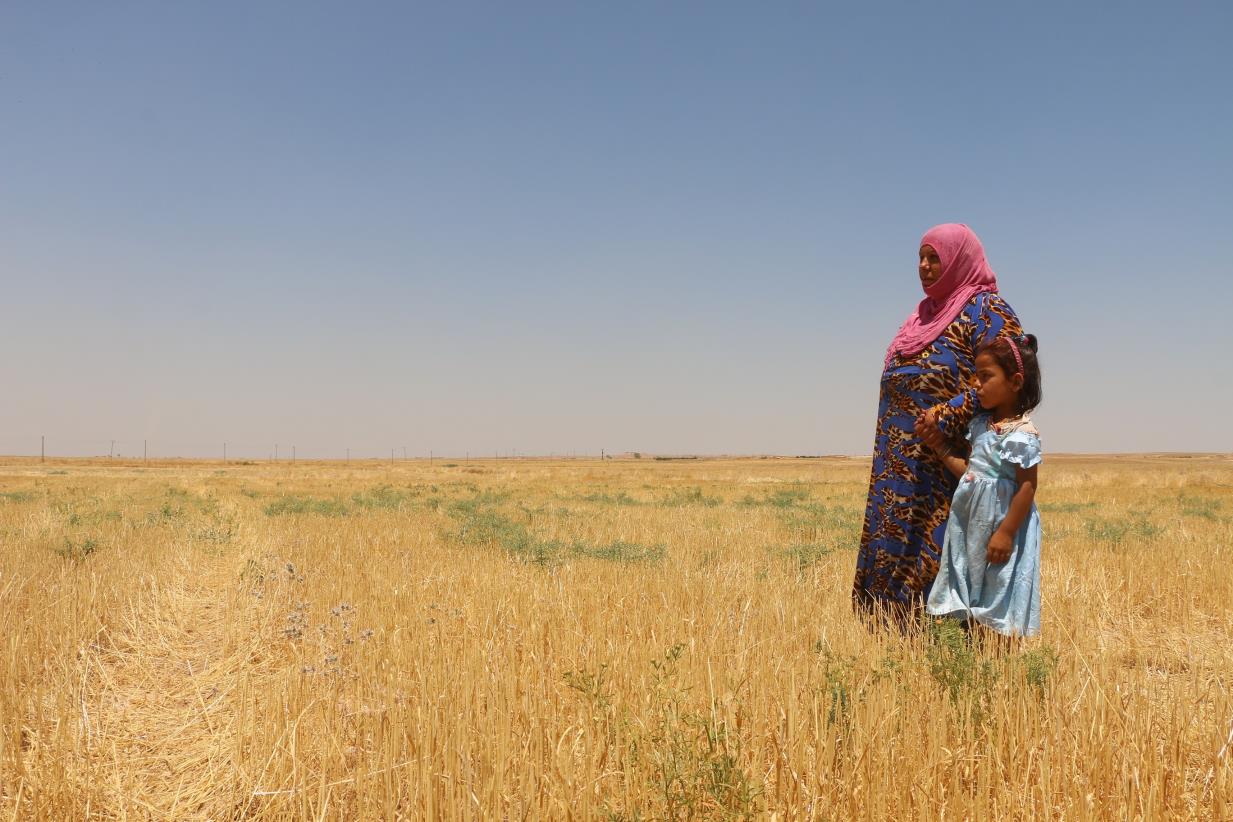FAO and the Green Climate Fund to support the Syrian Arab Republic to mitigate and adapt to the effects of climate change

Climate change is widely recognized as a global threat - to humans, a wide range of species and to the environment.
Even before the current crisis in Syria, the government was concerned about impact of climate change – rising temperatures; and reduced and/or more erratic rainfall - on its water resources, food production and rural livelihoods.
In 2007–2009, successive drought waves reduced wheat production in Syria by more than 50 percent. The consequent food price hikes triggered a food security crisis affecting around 3.5 million people mostly in the north-eastern part of the country (Ar-Raqqa, Deir-Ez-Zor and Al-Hasakeh) and lead to the migration of large numbers of small-scale farmers and herders.
Eight years of crisis have seen the damage to agricultural and irrigation infrastructure and resources, the cutting down large numbers of trees, wildfires and vegetation damage, and soil erosion.
The Notre Dame Global Adaptation Initiative evaluated the vulnerability of Syria and the readinesss of the country to respond to climatic challenges – especially with regard to food and water systems – and concluded that Syria scored relatively badly on both indicators, ranking 139 overall. Climatic vulnerabilities may still be manageable, but improvements in readiness are urgently needed to face a climate-resilient and low-carbon future.
In November 2017, the Syrian Arab Republic formally joined the Paris Climate Agreement committing countries to reducing greenhouse gas emissions to fight global warming.
At the same time, there remains a high level of ambition in Syria to scale up adaptation and mitigation activities as outlined in its first communication to the United Nations Framework Convention on Climate Change (UNFCCC). The second communication to the UNFCCC is under development and is intended to contribute to the preparation of Syria’s Nationally Appropriate Mitigation Actions (NAMAs).
As a key step, the Food and Agriculture Organization of the United Nations (FAO) and the Green Climate Fund have signed an agreement to implement a readiness and preparatory support to strengthening the capacity of the Syrian National Designated Authority (NDA), and the steering committee responsible for the Syrian Arab Republic’s climate change strategy.
FAO’s Representative in the Syrian Arab Republic, Mike Robson, said that Syria’s readiness programme is an important opportunity to focus on the country’s climate change strategies and action plans.
“We cannot consider climate change as just a ‘concern’, it is an overwhelming threat. FAO is committed to helping countries achieve the United Nations Sustainable Development Goal – SDG 13 Climate Actions – by developing national climate plans with our counterparts, in addition to encouraging smallholder farmers to adapt practices to mitigate and adapt to climate change effects on their crop and livestock production”.
The readiness programme’s activities will achieve three main outputs:
1) Strengthening the country’s capacity: through a gap assessment of the NDA and government processes, structures, and frameworks, set up an intensive capacity building programme, and forming the steering committee from the relevant line ministries to provide strategic guidance to the NDA.
2) Engaging stakeholders in consultative processes and developing plans for the country’s climate change programmes: through identifying the involved stakeholders to prepare the country’s comprehensive Climate Profile Analysis Report, based on the available information. In addition, to set a monitoring and evaluation plan to assess progress achieved with regard to Syria’s Country Programme on Climate Change adaptation and mitigation.
3) Support the Programme by accessing finance: By approaching, the Green Climate Fund with a finalized country programme framework, and propose two project idea notes and a recommendation report.
